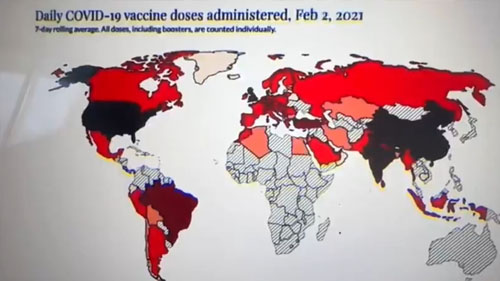| Recent Featured Videos and Articles | Eastern “Orthodoxy” Refuted | How To Avoid Sin | The Antichrist Identified! | What Fake Christians Get Wrong About Ephesians | Why So Many Can't Believe | “Magicians” Prove A Spiritual World Exists | Amazing Evidence For God | News Links |
| Vatican II “Catholic” Church Exposed | Steps To Convert | Outside The Church There Is No Salvation | E-Exchanges | The Holy Rosary | Padre Pio | Traditional Catholic Issues And Groups | Help Save Souls: Donate |  |









 " />
" /> " />
" /> " />
" /> " />
" /> " />
" />




"Pope Francis signs text affirming Amoris Laetitia allows Communion for divorced and ‘remarried’"
"Pope Francis and Cardinal Victor Fernández have responded to yet another set of dubia questions, this time from Cardinal Dominik Duka, O.P., stating that Amoris Laetitia allows for divorced and 're-married' individuals to receive Holy Communion.
In response to a question about whether a divorcee in a new union should be allowed Holy Communion, Francis and Fernández responded that 'Amoris laetitia opens the possibility of access to the sacraments of Reconciliation and Eucharist when, in a particular case, ‘there are limitations that mitigate responsibility and guilt.’
Cardinal Duka’s dubia and the Vatican’s answer to it are specifically focused on Amoris Laetitia, Pope Francis’ controversial 2016 apostolic exhortation which Fernández is widely believed to have ghostwritten. The dubia of 10 questions was submitted to the Dicastery (formerly Congregation) for the Doctrine of the Faith (DDF) on July 13 by Czechoslovakia’s Cardinal Dominik Duka, O.P., on behalf of the entire Czech Bishops’ Conference. (An unofficial English translation is available here.)
The response from the DDF was largely overshadowed Monday, with the day being dominated by news of the dubia submitted by five cardinals regarding the Synod on Synodality.
Duka’s dubia focussed on issues pertaining to allowing divorcees in new unions to receive the Holy Eucharist. The Italian language reply was signed on September 25 by the new DDF Prefect Cardinal Fernández and Pope Francis, just two weeks after Fernández assumed his new role as prefect.
The DDF’s reply is notable, since in 2016 four cardinals – Raymond Burke, Walter Brandmüller, Carlo Cafarra, and Joachim Meisner – issued a dubia of five questions, each requiring a simple answer of 'yes' or 'no,' and positing Amoris Laetitia in juxtaposition with Catholic Tradition. They never received an official answer.
Duka asked whether Pope Francis’ response to the Bishops of Buenos Aires – when the Pope stated there was 'no other interpretation' of Amoris Laetitia except the one provided by the bishops of Buenos Aires in allowing Communion for the divorced and 're-married' – can be considered 'a statement of the ordinary Magisterium of the Church.'
Fernández wrote that since Pope Francis’ words were published in the Vatican’s official compilation of documents, the Acta Apostolicae Sedes, they were 'authentic Magisterium.'
Duka asked again if this statement of the Pope’s to the Buenos Aires bishops was 'a decision of the ordinary Magisterium of the Church based on the document Amoris laetitia,' to which Fernández replied:
This document builds on the magisterium of previous Pontiffs, who already recognized the possibility for divorcees in new unions to access the Eucharist, as long as they make a ‘commitment to live in full continence, that is, to abstain from the acts proper to spouses’ as was proposed by John Paul II, or to ‘commit themselves to live their relationship… as friends’ as proposed by Benedict XVI.
Where Francis differed, said Fernández, was that he additionally 'admits that there may be difficulties in practicing it [full continence for divorcees in new unions] and therefore allows in certain cases, after proper discernment, the administration of the sacrament of Reconciliation even when one cannot be faithful to the continence proposed by the Church.'
Cardinal Brandmüller had warned prior to the 2016 dubia about Amoris Laetitia that the interpretation which Francis gave of the text to the Buenos Aires bishops would be heretical.
Duka’s dubia also queried what the role of a priest should be, when a divorcee in a new union approaches to receive Holy Communion.
Fernández drew from Amoris Laetitia to state that priests 'have the responsibility to accompany the persons concerned on the path of discernment,' but added that each individual is responsible for approaching Communion.
The cardinal wrote:
It is the priest who welcomes the person, listens to him attentively and shows him the maternal face of the Church, welcoming his right intention and good purpose to place his whole life in the light of the Gospel and to practice charity. But it is each person, individually, who is called to stand before God and expose his or her conscience to Him, with its possibilities and limitations. This conscience, accompanied by a priest and enlightened by the Church’s guidelines, is called to be formed in order to evaluate and make a judgment sufficient to discern the possibility of access to the sacraments.
'Amoris laetitia,' he wrote, 'opens the possibility of access to the sacraments of Reconciliation and Eucharist when, in a particular case, ‘there are limitations that mitigate responsibility and guilt.’'
READ: The pope’s ghostwriter: controversial archbishop penned key passages of Exhortation ten years ago
While Duka raised further questions about the process of a divorcee assessing his conscience, and the examination of one’s sexual actions in an examination of conscience, Fernández rejected the suggestion that Duka’s questions necessitated a clearer response from the Vatican.
'On the basis of the words of the Holy Father in his letter of response to the Delegate of the Regional Pastoral in Buenos Aires, in which it is stated that there are no other interpretations, it seems that the matter is sufficiently explained in the aforementioned document,' wrote Fernández.
Fernández has consistently been a notable defender of Amoris Laetitia’s controversial passages. Defending Amoris Laetitia in 2017, Fernández stated how Francis’ 'great innovation is to allow for a pastoral discernment in the realm of the internal forum to have practical consequences in the manner of applying the discipline.'
He repeated this argument in a homily earlier this year, decrying the Church’s position of not granting Holy Communion to all people at all times. Such a moral teaching is 'terrible,' claimed Fernández: 'It is terrible that this has happened in the Church. But thank God that Pope Francis is helping us to be free from those patterns.'
While Duka’s dubia has finally brought an answer to an official question posed to the Vatican about Amoris Laetitia, it is still likely that an even more direct document will yet emerge on the topic of Holy Communion for the divorced and 're-married.'
Cardinal Kevin Farrell – prefect of the Dicastery for Laity, Family, and Life, and himself a supporter of Amoris Laetitia as being 'the teaching of the Church' – revealed earlier this year that a document on the divorced and 're-married' was being drafted in line with the wishes of Pope Francis.
Commenting on Fernández’s previous support for the Pope’s comments to the Buenos Aires bishops, Dr. Peter Kwasniewski stated that 'Fernandez has doubled down to say, yes, what Francis said is what he meant: people who are still married to someone else but now ‘re-married’ can go ahead and receive Communion without ceasing to be sexually active with someone who is not their spouse, because they apparently aren’t able to do anything else.'
Such a message, the theologian added, 'directly contradicts the Council of Trent’s teaching..."
Sign up for our free e-mail list to see future vaticancatholic.com videos and articles.
Recent Content
^